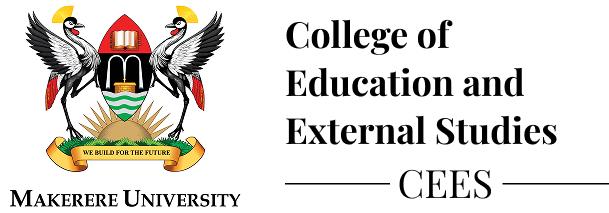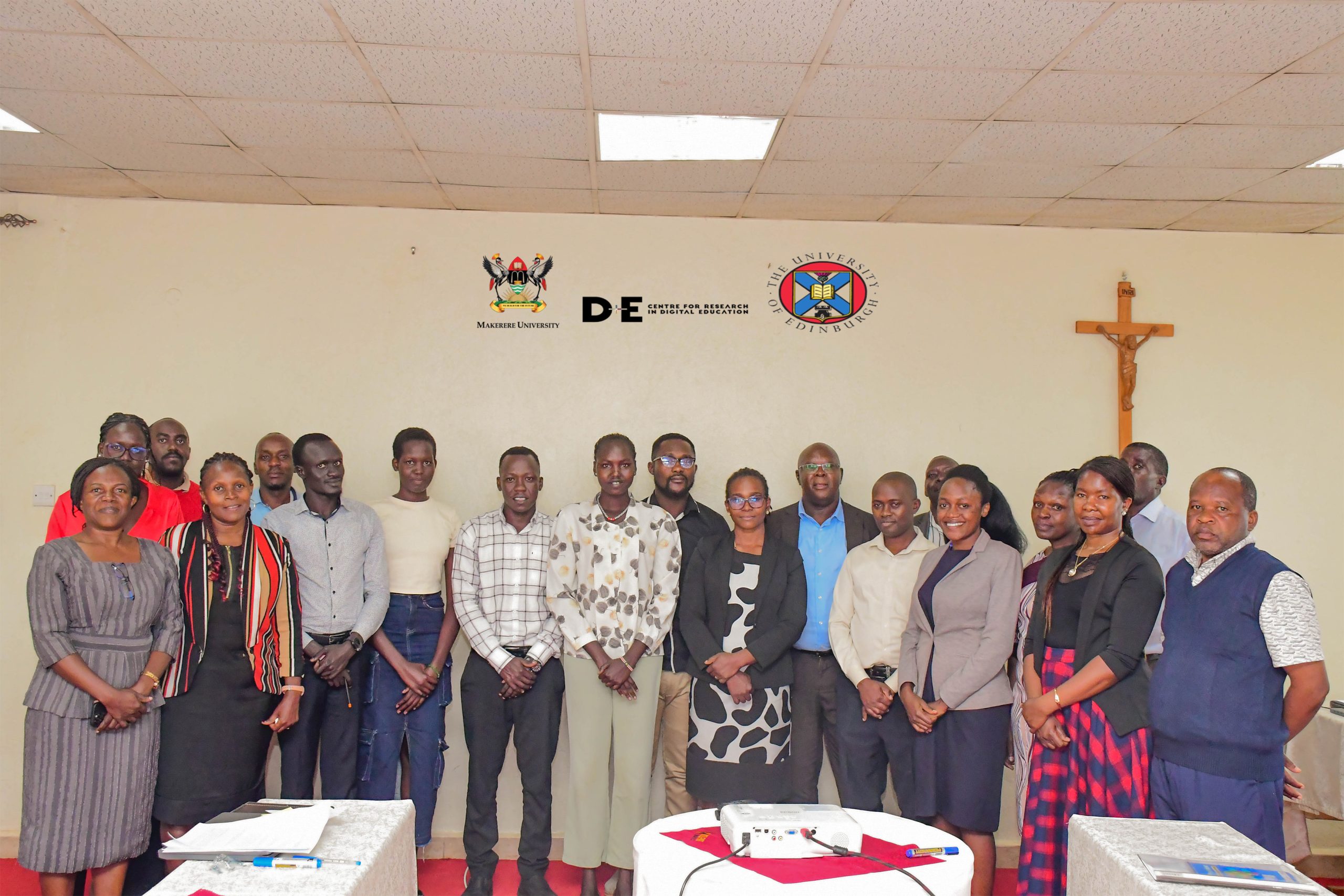The Policy, Practice and Accreditation: Towards Connected Refugee Education HEAC integrative Models project, led by Dr. Rovincer Najjuma, Dr. Michael Gallagher, and Dr. Rebecca Nambi, focuses on implementing research findings concerning refugee students in higher education institutions in Uganda.
It aims to establish a network of universities, civil society groups, and refugee students to collaboratively create a support framework aligned with the Higher Education Access Certificate (HEAC), allowing better access to education for refugees. Uganda, hosting approximately 1.5 million refugees mainly from South Sudan, DRC, Somalia, and Burundi, emphasizes inclusive education through policies such as the Comprehensive Refugee Response Framework.
The initiative addresses barriers in policy, social support, and digital education specifically targeting refugee participation in higher education. The key goals include advocating for reduced barriers, improving data transparency among participating institutions, and expanding training for marginalized groups. A selected group of universities and civil society organizations, including the Scottish Refugee Council, actively participates to assist in facilitating refugee access to higher education.
Makerere University executed this project with support of the following partners: The University of Edinburgh, Refugee Law Project and The Royal Society of Edinburgh.
Speaking on Day One of the engagement (26th March 2025), Prof. Anthony Muwagga Mugagga, Principal of the College of Education and External Studies at Makerere University acknowledged the pressing issue of refugee education, referencing biblical teachings that advocate for compassion: ‘The Bible emphasizes treating refugees well because at one time, we were all refugees.’
Addressing the historical context of refugee issues, he noted that after the Second World War, there was a belief that wars would end; however, the ongoing conflicts in places namely the Balkans and Ukraine remind us that the refugee crisis is far from being resolved. He emphasized the growing challenges faced by refugees, highlighting that as of today, conflicts in regions such as Sudan and DR Congo demonstrate that the refugee situation may become more protracted.
Prof. Muwagga Mugagga stressed the responsibilities of educational institutions, when he posed a question, “How do we train our teachers to support refugees who have faced severe trauma?” He expressed gratitude for the ongoing collaborative efforts, specifically recognizing the University of Edinburgh and all partners involved in this transformative initiative.
He urged participants to focus on adopting practical solutions as they move forward together in enhancing refugee education.
In the session titled, Setting the Scene for Refugee Education Landscape, Francis Randle from United Nations High Commission for Refugees (UNHCR) emphasized the critical need to frame refugee education within the broader context of connected learning and higher education which underscores the urgency of addressing educational challenges faced by refugees today.
Randle defined connected learning as a term that shifts focus from technology to the social aspect of education. “We really wanted to decenter the technology and emphasize the importance of human connection,” he said. Randle noted that this approach is vital for refugees who often join educational settings with significant trauma and bureaucratic challenges.
He highlighted UNHCR’s ambitious goal of enrolling 15% of refugees in higher education by 2030. He stated that some progress has been made with the figure rising from 1% in 2019 to 7% in 2025. He mentioned that higher education unlocks solutions for refugees. He noted that education not only empowers individuals, but can also lead to sustainable solutions for their situations.
Randle positioned UNHCR’s educational initiatives within the ‘Global Compact on Refugees’, which aims to ease pressures on host communities and enhance self-reliance. “If it’s done well, education work should align with the Global Compact on Refugees,” he remarked. This alignment is essential for fostering better relationships and resources for refugees.
Addressing the emerging role of education technology, Randle cautioned against the variable quality of services available to refugees. He was concerned about the so many providers of education technology with variable quality.
Discussing the ‘conditions for return,’ Randle noted the importance of skill acquisition during exile. Higher education plays a particularly critical role, indicating that those with better education are more likely to contribute to their home countries post-return.
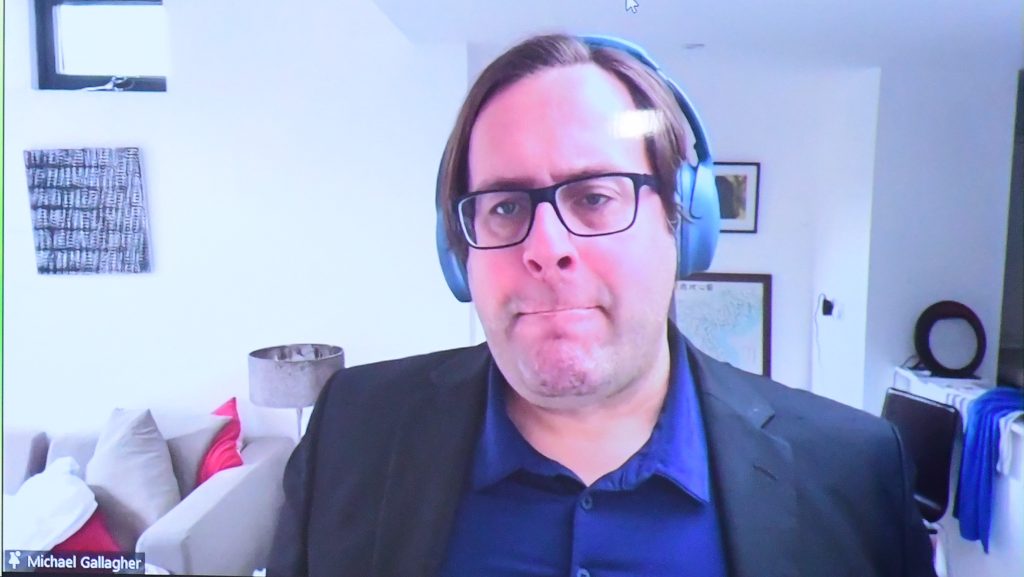
Presenting the ‘Connected Refugee Education Project,’ Dr. Michael Gallagher from the University of Edinburgh stressed the importance of defending the social spaces in which we live, emphasizing the need for institutional design in education. He suggested a thoughtful approach to creating robust and inclusive educational systems.
He raised critical points about the classification of refugee students noting that categorization and classification as international students can be both a great opportunity and a barrier. This highlights the complexities refugees face in the process of navigating/accessing educational institutions, particularly regarding fees.
Dr. Gallagher identified ‘language learning’ as a fundamental barrier. He noted that learning the language is central to overcoming the barriers faced by refugees. He emphasized the role of social services in creating strong support networks necessary for refugee students to thrive in education.
Dr. Gallagher addressed the dual-edged nature of digital technology in education. According to him, while digital technology can enhance learning, it can also complicate it. He advised institutions to focus on fostering effective communication and support systems.
Dr. Gallagher’s goal with the Connected policy, practice and accreditation: connected refugee education in Uganda and Scottish universities project, is to help students feel included. To elaborate this, he shared a quote from a student: “When someone seems like a normal person… you just have that good feeling.” Dr. Gallagher explained that the quote illustrates the importance of human connection and acceptance in higher education.
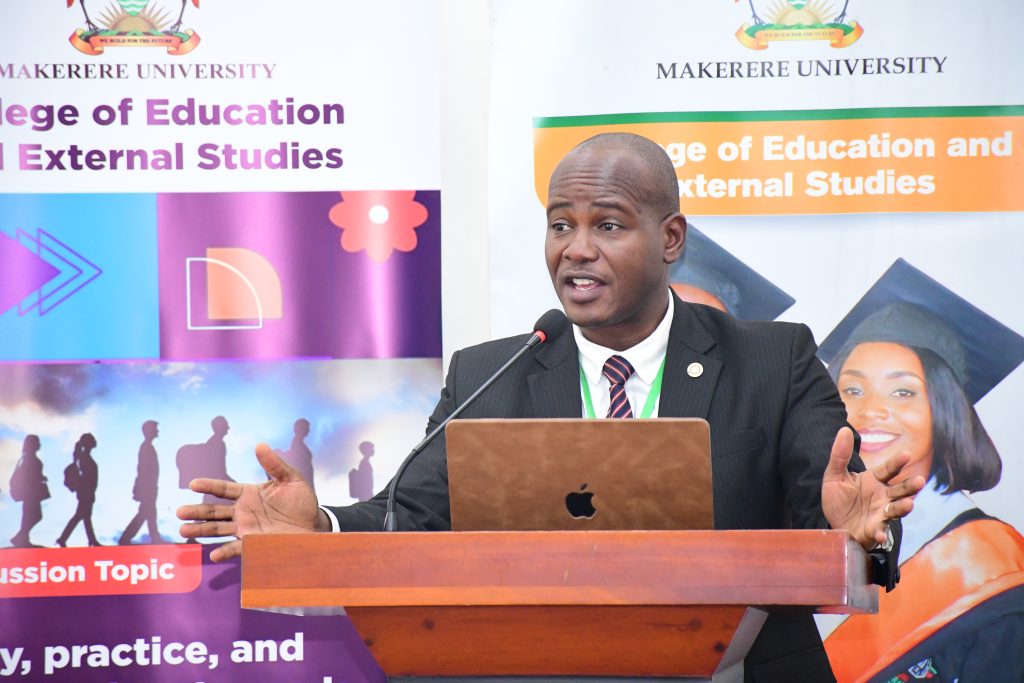
In his keynote address titled, Connected Refugee Education: Access, Pathways and the role of the digital, Prof. Jude Lubega, the Vice Chancellor of Nkumba University contextualized the significance of digital education for refugees. Prof. Lubega affirmed that Uganda hosts over 1.7 million refugees-the largest number in Africa. With reference to the statistics, Prof. Lubega called upon the participants and collaborating institutions to leverage the various refugee policies to enhance educational access.
On the issue of challenges faced by refugee students, Prof. Lubega stated that many of them encounter language barrier and limited resources, which prevents them from accessing quality education. In addition, Prof. Lubega disclosed that while primary school enrollment among refugees is at 68%, tertiary enrollment is shockingly less than 5%, which calls for immediate action.
Prof. Lubega explained that digital technologies could bridge educational gaps. He guided that Connected education must utilize the available digital tools to deliver quality learning experiences to refugees. He shared that online and mobile technologies can facilitate educational access, making it possible for students in remote settlements to connect with quality resources and instruction.
He challenged stakeholders to rethink traditional approaches, and the need to move away from conventional practices and embrace innovative methods to deliver education effectively within refugee communities.
He reminded participants that the digital divide should not hinder the educational journey of refugees. “As educators and policymakers, it is our responsibility to create inclusive pathways that empower these learners,” he stated. He called for collaboration and investment in digital infrastructure, when he said: “Together, we can ensure that education becomes a seamless reality for every refugee, thus enriching both their potential and our collective future.”
In a Panel discussion focusing on the Analysis of Accreditation policy and processes for the Higher Education Access Certificate (HEAC) and frameworks to access higher education for refugee students, Rev. Dr. Cyrus Seera Ssebugenyi, Principal Higher Education Officer at National Council for Higher Education (NCHE) explained the purpose of the Higher Education Certificate program, especially for those not meeting the traditional entry requirements.
He pointed out that the HEAC program is designed to allow students who have not obtained the necessary principal passes in their secondary school qualifications to access higher education. He emphasized inclusivity, noting, that they treat refugees as students who deserve access to education.
Rev. Dr. Ssebugenyi discussed the significance of establishing the minimum standards for the HEAC program. He informed the participants that in 2015, NCHE approved standards that universities use to develop their programs. On the viability of online education, he pointed out that many courses can be run online, especially those without laboratory requirements. He encouraged institutions to leverage digital pathways for learning.
He highlighted the role of collaboration, stating that, the involvement of technical working groups can support universities in developing effective curricula ensuring all students, especially refugees, are provided with equitable educational opportunities.
Participants and collaborating institutions also listened to insights on equating papers for international students particularly refugees. Mr. Moses Mugizi, Head of Research & Equating Unit Officer at Uganda National Examinations Board (UNEB) mentioned that there is an increasing number of refugees seeking education in Uganda. “The biggest number of students who come for equating papers are refugees,” he said.
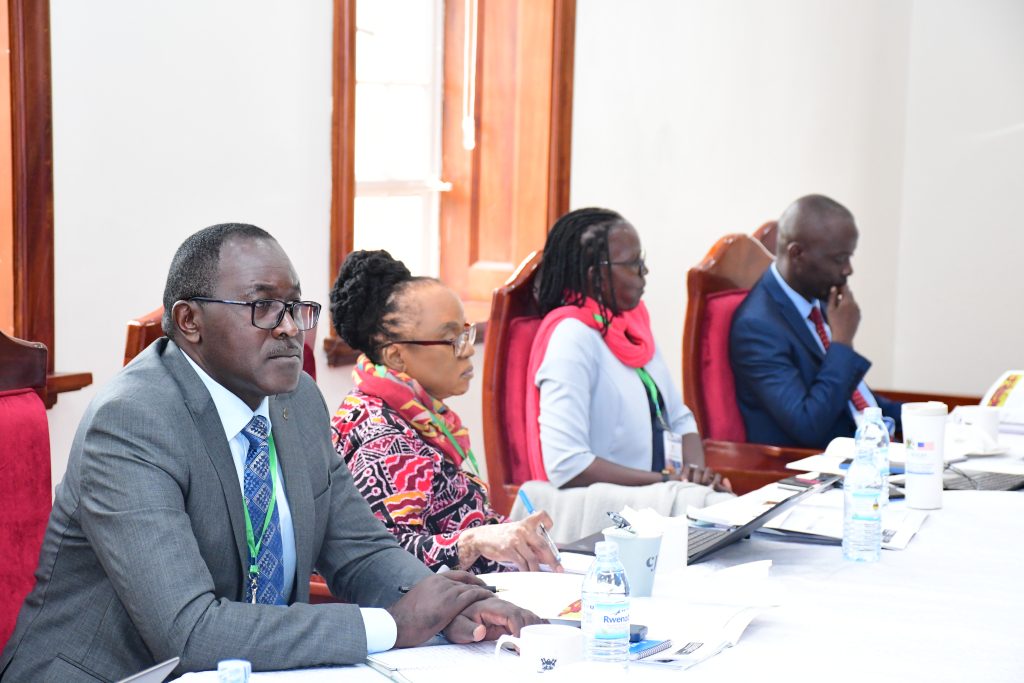
Mr. Mugizi reported that UNEB recognizes the unique needs of refugee students in the educational landscape. He pointed out the newly streamlined online equating process. By coming up with an online equating process, which ensures that refugees can access it from anywhere, UNEB commits to making the accreditation process more accessible for all students. “We have streamlined the equating process to be accessible online, eliminating discrimination in fees, ensuring that refugees pay the same as national students,” he added.
Mr. Mugizi tipped the participants on the challenges associated with documentation for refugee students. “When refugees are fleeing, they do not have time to prepare or look for documents,” he said. Mr. Mugizi acknowledged the difficulties that arise when refugees lack documentation. “Verification can be challenging due to issues of protection and essential documentation,” he asserted. He revealed that while the verification process is necessary, it can pose security concerns for some refugees, indicating the need for sensitivity in these situations.
To address undocumented qualifications, UNEB introduced the UNESCO Qualifications Passport, which allows students without formal certifications to gain access to higher education, affirming that once those documents are submitted, they provide a safe investment for refugee students to join the HEAC program.
In the second panel titled ‘HEAC provider and non-provider perspectives on current provision, actors, and possible improvements that need to be made, Prof. David Olema from Busitema University, reflected on the significance of higher education access, particularly for refugees. Prof. Olema deliberated that the issue of access to higher education is deeply rooted in statistics and regional perspectives, for example, South Sudan displays a concerning statistic of less than 15% for higher education access. Prof. Olema emphasized historical challenges, recounting that, after the Second World War, it was believed that there would be no more wars in Europe, but the ongoing conflicts remind us that the refugee situation is not resolved.
Moving forward, Prof. Olema highlighted the need for continuous improvement. “We must ensure the HEAC programs are inclusive and meet the standards that allow students to thrive in their academic journeys,” he remarked. He urged participants to consider how academic institutions can better support refugee students, stressing that a collaborative effort among educators, policymakers, and community organizations is vital to initiate transformative practices in refugee education.”
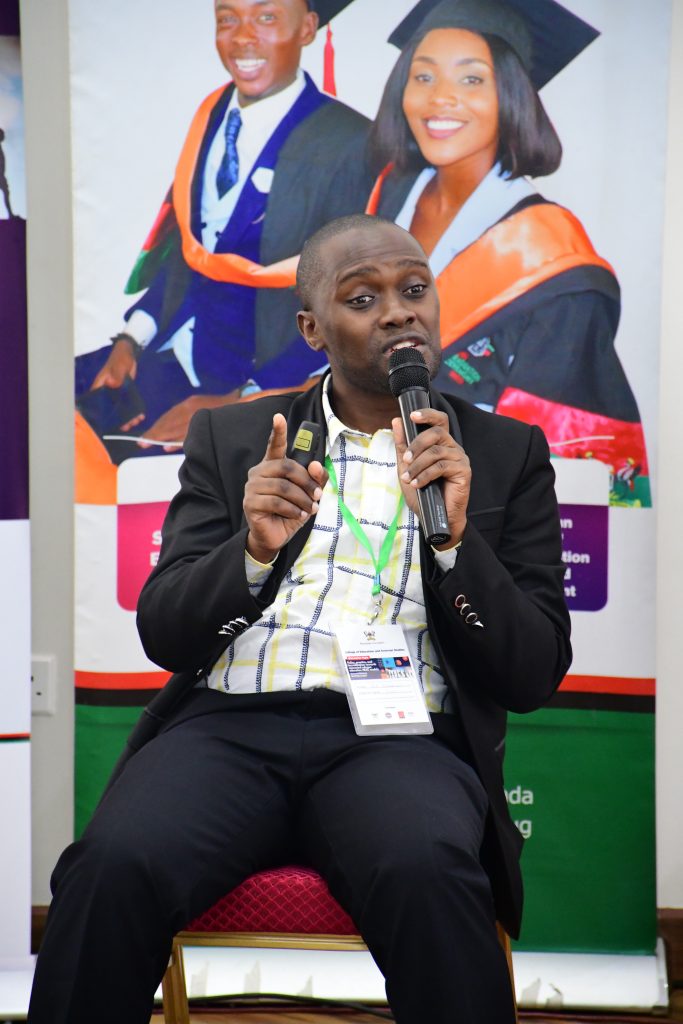
Dr. Derrick Sekajugo, from Kampala International University (KIU) presented the evolution of the Higher Education Access Certificate (HEAC). He said: “When we developed the HEAC, we collaborated closely with stakeholders to ensure it addressed access issues comprehensively.” He explained that their aim was to incorporate diverse curricular elements to support the varied backgrounds of refugee students, noting that their programs had to adapt to the needs of students from different educational systems.
The third Panel titled, Refugee Student Experiences of different HEAC programmes across different disciplines, featured student representatives from Kampala International University, Nkumba University, Bugema University, Cavendish University and Forum for African Women Educationists (FAWE).
Sharing their experiences, one student noted that the application process was quite challenging, since this was his first time applying for university education. He expressed how transitioning from high school to university coursework, especially in economics, was a steep learning curve due to a lack of prior exposure.
A student from Cavendish University shared her struggles with online learning. “Initially, adjusting to online classes was difficult for me, but I received support from friends,” she said. She underscored the importance of community in navigating these challenges, explaining that friends helped her understand how to engage with the materials better.
Reflecting on the overall experience in HEAC, one student advised future participants to join HEAC, for it presents a great opportunity to build social networks and gain knowledge. Discussing the structure of the HEAC program, another student noted that this year they are covering a variety of disciplines, including data studies and international counseling.
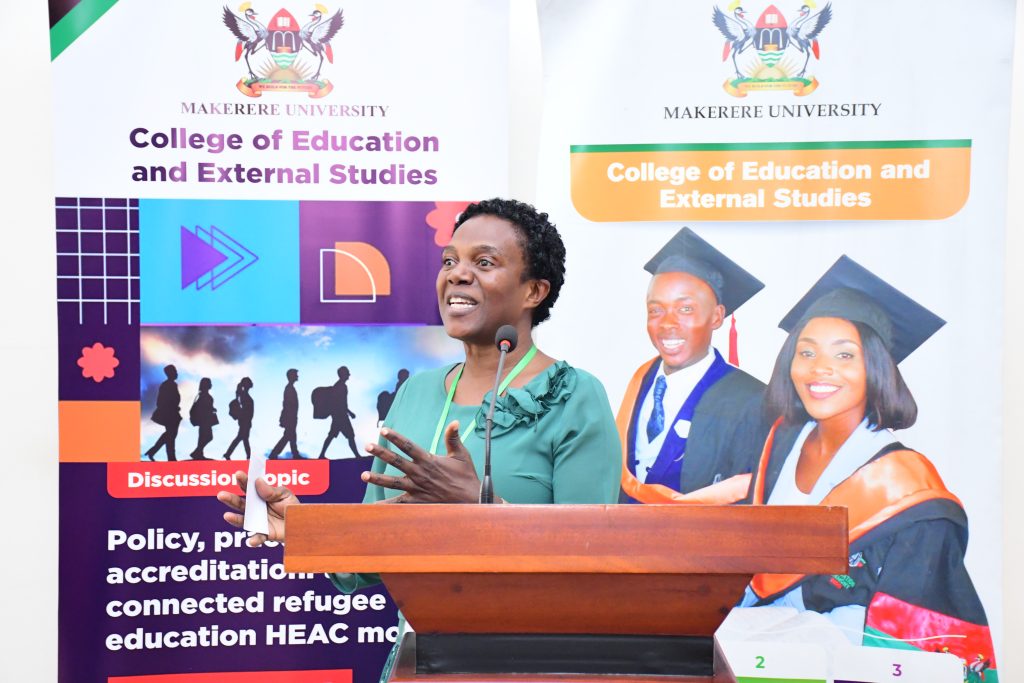
Wrapping up the proceedings of Day One, Dr. Rebecca Nambi from Makerere University and Dr. Rovincer Najjuma from the University of Edinburgh commended the participants for their active participation. “We started this journey with collective knowledge sharing, and the deliberations held today, on the 26th of March 2025, mark the continuation of the important dialogue,” she articulated.
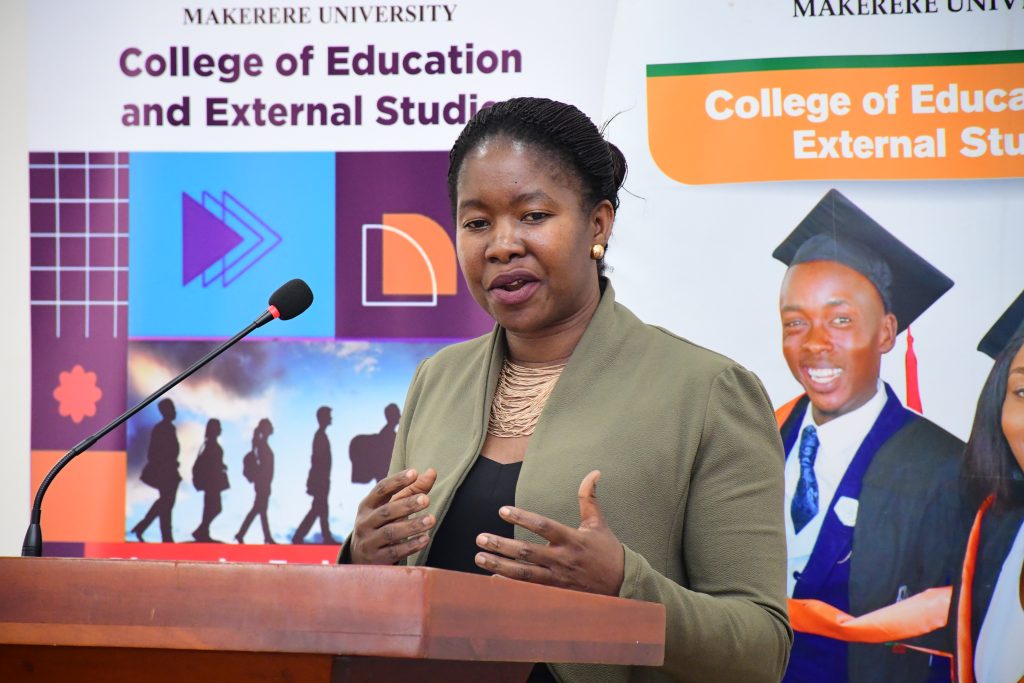
They emphasized the value of collaboration in shaping educational frameworks. They reiterated the project’s aim of creating a robust framework for implementing connected communication tailored to refugee education. “Our goal is to develop a shared framework that works with or without digital technologies. By improving educational systems for refugee students, we simultaneously uplift the education system of the host country.”
